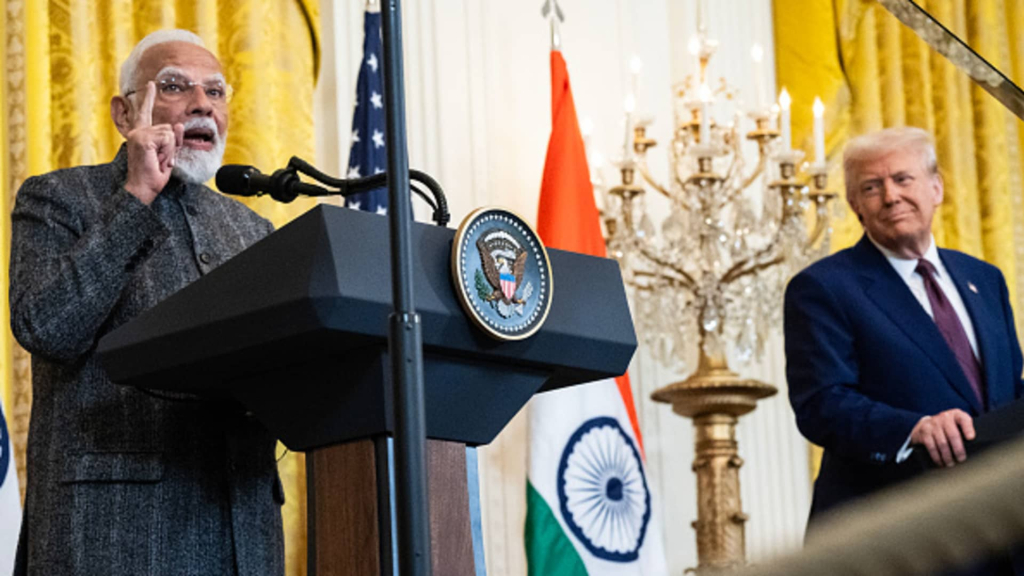In a recent phone conversation, Indian Prime Minister Narendra Modi expressed his discontent with U.S. President Donald Trump’s assertions regarding his involvement in mediating a ceasefire between India and Pakistan. The conversation marked their first engagement since the outbreak of conflict between the two nuclear nations in early May.
According to Foreign Secretary Vikram Misri, Modi firmly reiterated, “India does not and will never accept mediation,” underscoring national unity on the issue. This statement was part of the official remarks following the call, detailing Modi’s position on the matter.
The discussion, which lasted 35 minutes, was initiated by Trump and included clear communications that the U.S. did not play a mediating role in the ongoing tensions, nor was there any talk of a trade agreement, as Misri reported.
This latest dialogue followed a previous interaction earlier in May after a terrorist attack by Islamist militants in Kashmir resulted in the deaths of 26 civilians, sparking a retaliatory bombing and escalating into a serious four-day clash between the two nations.
Trump has repeatedly claimed that the U.S. was instrumental in de-escalating tensions, stating outside the White House on Wednesday, “I stopped the war between Pakistan and India,” and referred to Modi as “a fantastic man.”
In his recent comments, Trump has also drawn parallels between the current conflict involving Israel and Iran and the tensions between India and Pakistan, asserting that “Israel and Iran should make a deal just like I got India and Pakistan to make.”
The tone of India’s response appears to be heightened partly because of Trump’s decision to host Pakistan’s Army Chief for lunch at the White House, which Trump described as an opportunity to “thank him for not going into the war” and to discuss potential trade relations.
Moreover, Trump has highlighted advancements on a trade agreement with India as well. Initially scheduled to meet Modi face-to-face at the G7 summit in Canada this week, Trump departed the trip a day early, with the administration attributing the abrupt change to escalating tensions in the Middle East.


























